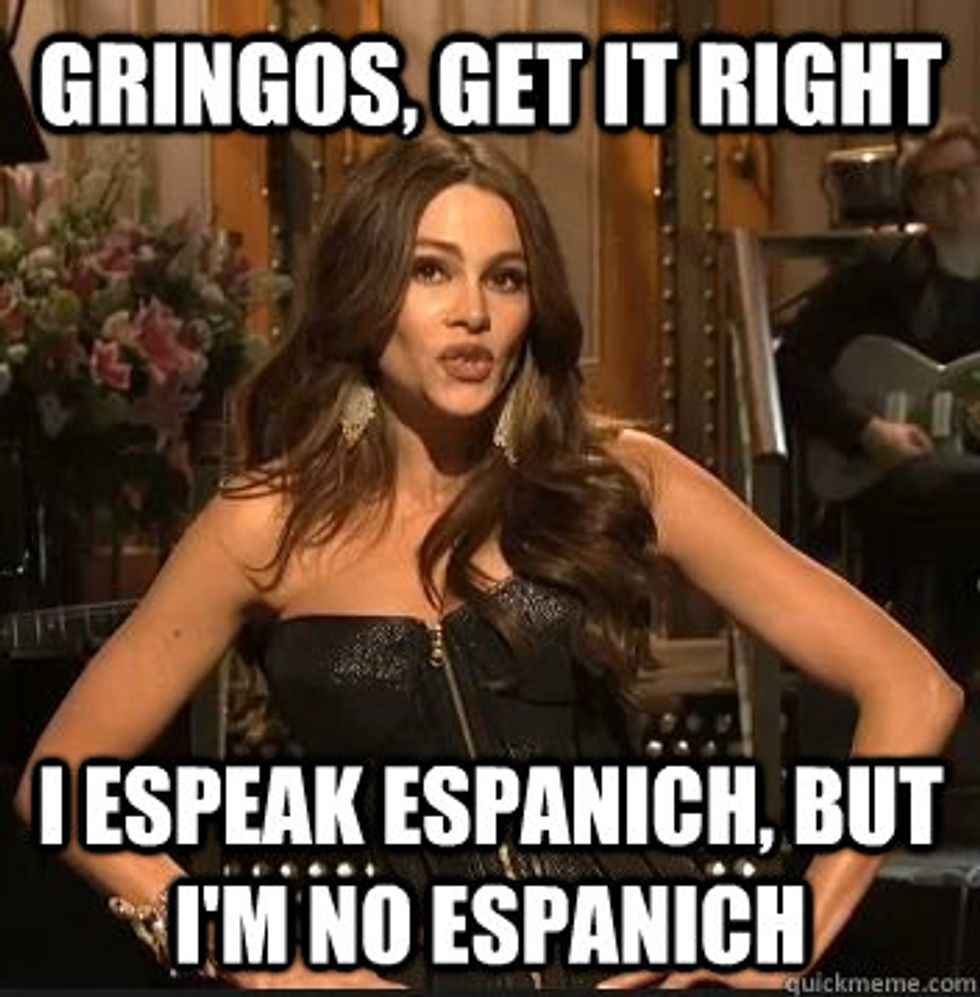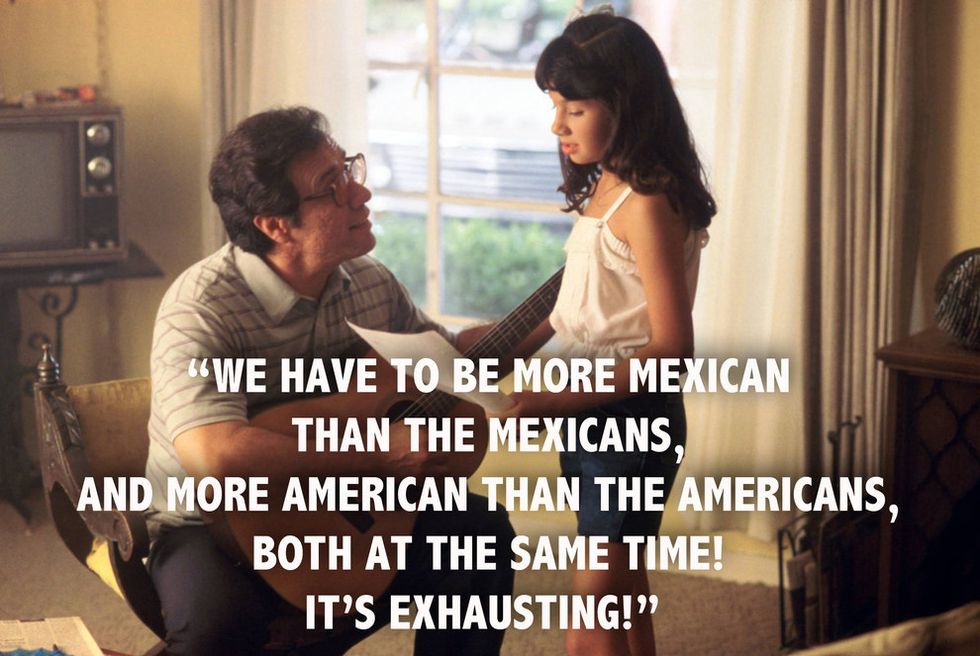Whether your bloodline has generations of roots in the U.S. or you are the first of your family to be born here, you're sure to at least have a friend that comes from a multicultural family. America serves as a beautiful melting pot, overflowing with endless combinations of ethnic makeup. Personally, growing up bi-cultural has presented me with opportunities and helped me form stronger bonds that I could never have experienced without such a unique background. The Odyssey as a platform recently received harsh backlash due to the staff's "lack of diversity." As someone coming from a Polish and Mexican household, I resent that generalization and feel compelled to highlight both the pros and cons of being raised bi-culturally.
The Pros
1. Achieving Bilingual Status
2. Traditions
American birthday parties as a kid are great. Usually including a theme, "goodie bags" for each attendee, and bounce houses, one essentially knows what to expect time after time. Mexican fiestas on the other hand, tend to go a bit differently. Complete with the guys BBQ-ing outside while the women gossip and cook in the kitchen, sneaking Coronas from your favorite uncle with your cousins, and undoubtedly having your face smashed into your cake; these special moments make all the difference. In regard to making tamales, embarking on vacations south of the border to visit distant relatives, and playing infinite rounds of Loteria, nothing compares to Mexican family bonding.
3. Community
Without the sacrifices made by my grandparents throughout their lives, I surely wouldn't exist, much less possess the privileges that, admittedly, are often taken for granted. Learning the meticulous recipes perfected by my grandmother years ago, happily listening to my grandfather recount the songs of his childhood in Mexico, and developing a personal connection to the curriculum in World History classes throughout my academic career have instilled a proud sense of belonging in me. My Latin roots and history remind me to chase my dreams, like Selena Quintanilla, to break glass ceilings like Rita Moreno, and perhaps most importantly, to always keep fighting, like Frida Khalo. They're not lying when they say Latinas are crazy, and we mold that craziness into ambition and motivation (Seriously, though, don't piss off a Latina).
Flying the American flag on The Fourth of July and The Mexican flag on September 16th to celebrate each country's respective Independence Day comes naturally and with equal pride, as I never gave it much thought. However, my parents made sure to provide the best education possible for me, radiating pride and appreciation for the customs and teachings of their ancestors. To this day, my gratitude towards my parents remains fierce and plentiful. However, when you get the best of both worlds, you also get the worst of both worlds.
The Cons
1. Discrimination
Growing up in a predominantly white grade school, I often felt left out among my peers. I looked with envy as I compared my fair brown hair and olive skin to their golden locks and snowy complexions that reminded me of Disney Princesses. (we had no African American or Hispanic princesses in my day) In public, I watched my grandparents’ faces contort with confusion as they struggled to communicate and grew to resent my job of translating for them.
2. Stereotypes
Media portrayals of life as a Latina often show our people in a negative light, sticking on labels such as lazy, “illegal,” and incapable of any job more complex than housecleaning or yard work. I know that Mexican-Americans, and all ethnic groups for that matter, bring much more positivity to the table than they receive credit for. I’ve never met anyone as hard working or determined as someone who has packed up their entire life and immigrated to the United States. However, these incorrect and unfair stereotypical accusations have cemented themselves in mainstream media. Yes, I speak Spanish. No, I will not “say something” for you. No, I’m not related to El Chapo- what the hell?
See? Not cool.
3. Feeling Torn
At my all-girls high school, the cafeteria held roughly 200 students. Tradition called for the seniors to sit near the windows, which no one ever combatted; as we were otherwise allowed to sit where we pleased. Without question, the majority of students sat at racially segregated tables. We didn’t have a clique problem; the flocking occurred on its own. I mostly sat with the white girls, though part of me felt out of place regardless of which group I socialized with.
Overall, I wouldn't trade my roots for anything. My family, heritage, and history have helped me develop into the person I am today. When I wish my hair was blonder or hear an offensive joke about people within my culture, I remember what my ancestors endured to get me here, pop in my Shakira Cd, and deal with it.























